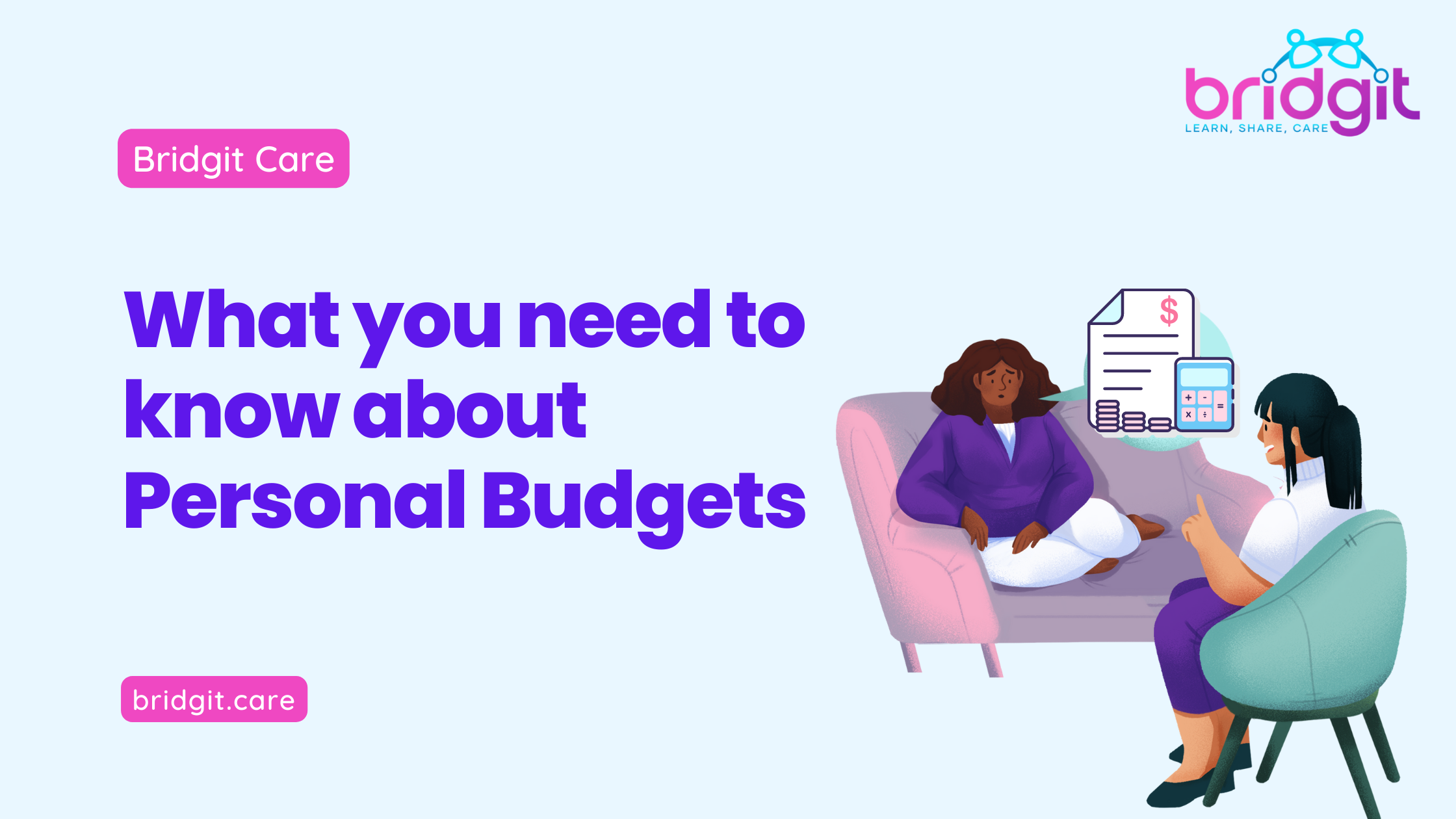What is a personal budget?
A personal budget is money that is allocated by your local council. This money is intended to pay for the care or support to meet assessed needs. This money comes from adult social care and an individual can take this as a direct payment. The person receiving this budget can also choose to leave the council to arrange services (managed budget).
An alternative is an individual service fund, which is a personal budget that a care provider manages on a person’s behalf. [i]
What is a personal health budget?
A personal health budget is money given to pay for specific health needs. This is given to someone who is not in hospital but has complex ongoing healthcare needs. This budget can be managed by either the person getting the care or by the NHS. The budget is calculated on the specific care plan of the individual. The care plan specifies health goals and how the budget will help reach them. The money can be spent on things like therapies, personal care and equipment. Using a personal health budget is a choice and not obligatory. [ii]
How does a personal health budget work?
If you or the person you care for could benefit from a personal health budget, you can get in contact with your local NHS team or health professional. Certain groups of people have a legal right to a personal health budget, outlined in the Right to have guidance (December 2019).
Decisions about who can have a personal health budget (expect for legal rights cases) are decided by local clinical commissioning groups (CCGs). CCGs are responsible for paying and planning most local health services. [iii]
For adults eligible for NHS Continuing Healthcare, the budget must cover 100% of the person’s assessed health and social care needs.
What needs to be in place before receiving this as a direct payment?
- Recruitment and employment of personal assistants
- Training and competency sign-off
- Equipment (outside of existing provider contracts)
- Bank account for the direct payment
- Employment requirements, e.g. payroll support, insurance

What can’t you spend the personal health budget on?
- GP services (GP contract)
- Acute unplanned care (including A&E)
- Surgical procedures
- Medication
- NHS charges (e.g. prescription charges)
- Vaccination or immunisation
- Screening
- Gambling, debt repayment, alcohol and tobacco
- This budget can only be spent on things that meet the health and wellbeing outcomes that have been agreed with the NHS.
How does a personal budget work?
After having a carer’s assessment, you might be entitled to receive a personal budget. You can get a carer’s assessment for free and anyone over the age of 18 can ask for one.
You can choose how to receive this payment and ask the council to either [iv]:
- The council will manage your personal budget on your behalf.
- Pay the money to another organisation (e.g. a care provider).
- Directly pay the money to you or someone you choose (known as a direct payment).
You can also choose a combination of these options.
What are the benefits of direct payments?
Direct payments give you more flexibility over how your care and support is arranged and provided. For example, you could choose to hire care workers or personal assistants who [v]:
- are always the same people and available when you need them
- speak the same language as you
- have experience working with your care needs
- are a specific person that has been recommended to you
- can help you get to shops or social events

